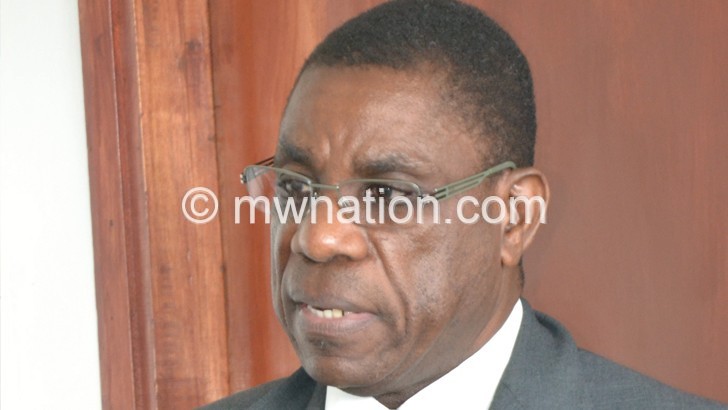Briquettes for clean energy
Amind boggling 2 083 hectares of forests are lost to wood energy every year in the country. This alarming rate is enough reason to worry everyone as Malawi may as well be on the road to desertification.
However, Malawi stands a chance to avert the environmental crisis and diversify from using wood energy, courtesy of briquettes.
Richard Mlotha, the man behind Malasha Briquettes in Lilongwe, says he embarked on briquettes making entrepreneurship after graduating from Mzuzu University in 2017. His passion to create clean environment made him settle for the project.
He says:” With briquettes, you are assured of total protection to the environment.
“Most importantly, briquettes burn for two hours which is not the case with illegal charcoal, but surprisingly, it is also cheaper.”

There are a myriad of advantages that briquettes offer, both to an individual and the environment. Once adopted on a large scale, forests can be affected.
“If you try briquettes today, you’ll no longer go back to wood energy or illegal charcoal. The advantages go beyond environmental degradation and deforestation.
“This is my second year using this wonder stuff. With K8 500, you buy a 50 kilogramme [kg] bag which will cover a period longer than that covered by a 50kg bag of charcoal,” says Linley Ndhlovu, a briquettes user in Area 25 in Lilongwe.
What makes briquettes a more appropriate alternative to wood or charcoal is its zero need for advanced technical know-how, both when it comes to making machines and during production.
”At first, we used to buy machines from India and China. But after some time, we realised that we were being ripped off. We are now manufacturers of the machines.
”What is more interesting is that we use metals that are readily available to make these machines,” said Mlotha.
Most importantly, briquettes are made out of cheap materials that can be found locally, thereby making people save money.
Said Mlotha: ”Over 90 percent of materials we use come from agricultural wastes. We sometimes use wastes from dumping sites but the problem with these wastes is the presence of plastic papers-briquettes demand 100 percent organic wastes.
”The only thing that you buy other than wastes is binder which is used to bind them [wastes] together.”
Government and other relevant stakeholders must formulate deliberate policies to encourage individuals and companies to venture into briquettes production so as to increase their accessibility.
According to Mlotha, unlike illegal charcoal, briquettes have the potential to help the country’s 18 million people for over 100 years as materials needed are locally generated but the problem lies with financial capacity.
“We’re failing to satisfy the needs of the market. We only produce about 115 metric tonnes [MT] of briquettes per month. Our dream is to produce about 1 000 MT per month because the market is there.
“We appeal to government and non-governmental organisations to help us with capital so that we scale up production,” adds Mlotha.
The Ministry of Forestry estimates that Malawi loses about 25 000 hectares of forests annually through illegal charcoal business as 90 percent of Malawians use charcoal and firewood to meet their energy needs.
This is why the 2020 amendment to the Forestry law mete out enables courts to melt a fine of K5 million or in default a jail term of up to 20 years.
The new law also carries a forfeiture clause, putting vehicles used to transport illegal charcoal at risk.
Much as all the disincentives put in place are plausible, in the absence of alternatives such as briquettes, some quarters feel that efforts to tame deforestation are a non-starter.
“Hoping to stop charcoal use by law is a misplaced proposition. Its demand is huge in the absence of an alternative.
“It is futile for any law to stop this even if they said anyone found using charcoal will be hanged. No one will stop and the first to be hanged will be the very same parliamentarians,” says Consumers Association of Malawi executive director John Kapito.
He reminds government about its responsibility towards finding alternatives to wood energy, other than banking its hopes on the law which, he said, cannot work.
During the official opening of last year’s National Forestry Season in Nkhata Bay, President Lazarus Chakwera emphasised the need to use briquettes for cooking than charcoal or firewood which he described as main drivers of deforestation.
In Africa, countries such as South Africa, Tanzania, Kenya, Sudan, among others use briquettes, with Sudan and Kenya having the widest experience of briquettes in Africa.






One Comment